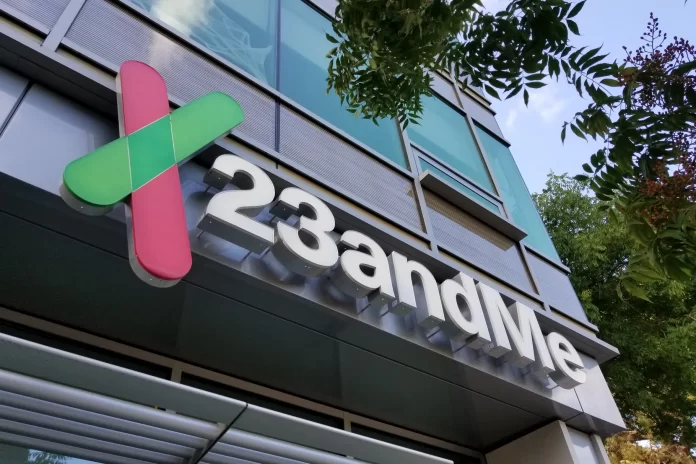
Last week 23andMe announced the first participant has been dosed in a Phase I clinical trial evaluating its first wholly-owned drug candidate, 23ME-00610, for the treatment of advanced solid tumors. The company also received FDA clearance this week for its new test to detect a hereditary marker of prostate cancer. This latest test is 23andMe’s third 510k approval. The company also has four De Novo clearances, including for it’s BRCA1/BRCA2 report.
The launch of the clinical trial wholly sponsored by 23andMe is a pivotal achievement for the company’s therapeutic development division, which was started in 2015. But in 2020 GSK launched a trial of a drug candidate that came out of its collaboration with 23andMe, which started in 2018.
“This is an important milestone for 23andMe in our mission to help people access, understand and benefit from the human genome,” said Anne Wojcicki, CEO and co-founder, 23andMe, in a release. “When we started our Therapeutics group, our goal was to find new medicines validated by human genetics for people with serious unmet medical needs. That’s why we’re excited to move 23ME-00610 into the clinic to potentially help people with cancer who are in need of new treatment options.”
The target for the new investigational antibody, CD200R1, was identified as a promising immuno-oncology target through 23andMe’s proprietary genetic and health survey database. That strategy involves looking for pathways that are involved both in autoimmunity and in cancer, says Jennifer Low, head of Therapeutics Development at 23andMe. While the target is known, this is a new approach to using it in cancer treatment. “We haven’t published any papers or said anything about this until now, because we are keeping the information proprietary,” Low said in an interview with Inside Precision Medicine.
The question of how and whether 23andMe would turn their customer data into drug development gold has been long standing. But it seems the company’s bet has paid off as the people who sign up for their services also tend to be interested in participating in research.
23andMe has approximately 12 million customers, roughly 80% of whom consent to participate in research. 23andMe scientists study aggregate, de-identified genetics of these participants, alongside more than 4 billion health survey answers. Using its large database of genetically linked health traits and machine learning applied to its proprietary I/O genetic signature, 23andMe is able to pinpoint areas of the genome that contain targets for cancer therapeutics based on human genetics, including the 23ME-00610 target.
“Our approach to drug discovery is driven by human genetics, and we have an incredibly large database from which to select and advance genetically validated targets more efficiently, and with a potentially higher probability of success, than traditional drug discovery methods currently allow,” said Kenneth Hillan, Head of Therapeutics at 23andMe, in a press release. “23ME-00610 is an exciting example of how we are translating our data into investigational therapeutics.”
The Phase I clinical trial is designed to evaluate the safety, tolerability and pharmacokinetics of 23ME-00610 in patients with locally advanced or metastatic solid tumors whose disease has progressed after standard of care treatment.
23andMe has developed an analytical approach, termed the immuno-oncology (I/O) genetic signature, to identify evidence for genetic variants that increase immune function while decreasing cancer risk. Using this approach, 23andMe scientists discovered that three components of the CD200R1 pathway exhibit an I/O genetic signature, including the CD200R1 receptor, the CD200 ligand, and DOK2, a mediator of downstream signaling from CD200R1. Following this genetic insight, 23andMe subsequently generated data consistent with CD200R1’s role in inhibiting anti-tumor responses in immune cells.
The CD200–CD200R1 axis, the researchers report, is an immunological checkpoint that plays a pivotal role in maintenance of immune tolerance. CD200R1 is an inhibitory receptor expressed on T cells and myeloid cells while CD200, the ligand for CD200R1, is highly expressed on certain tumors. Binding of tumor associated CD200 to CD200R1 leads to immune suppression and decreased immune cell killing of cancer cells.
23ME-00610 is a high-affinity humanized monoclonal antibody that is designed to bind to the CD200R1 receptor and prevent the interaction of CD200 and CD200R1. Preclinical data indicate that this mechanism has the potential to reinvigorate tumor-exhausted T-cells and myeloid cells to restore their ability to kill cancer cells.
Regarding the new FDA-approved prostate cancer marker, Anne Wojcicki, 23andMe’s CEO and cofounder, said in a release, “23andMe remains the only company with multiple FDA authorizations for direct-to-consumer genetic health reports. These reports provide our customers with the knowledge that they might be at risk for certain diseases, including hereditary cancers, empowering them to take appropriate preventative action with their healthcare provider.”












